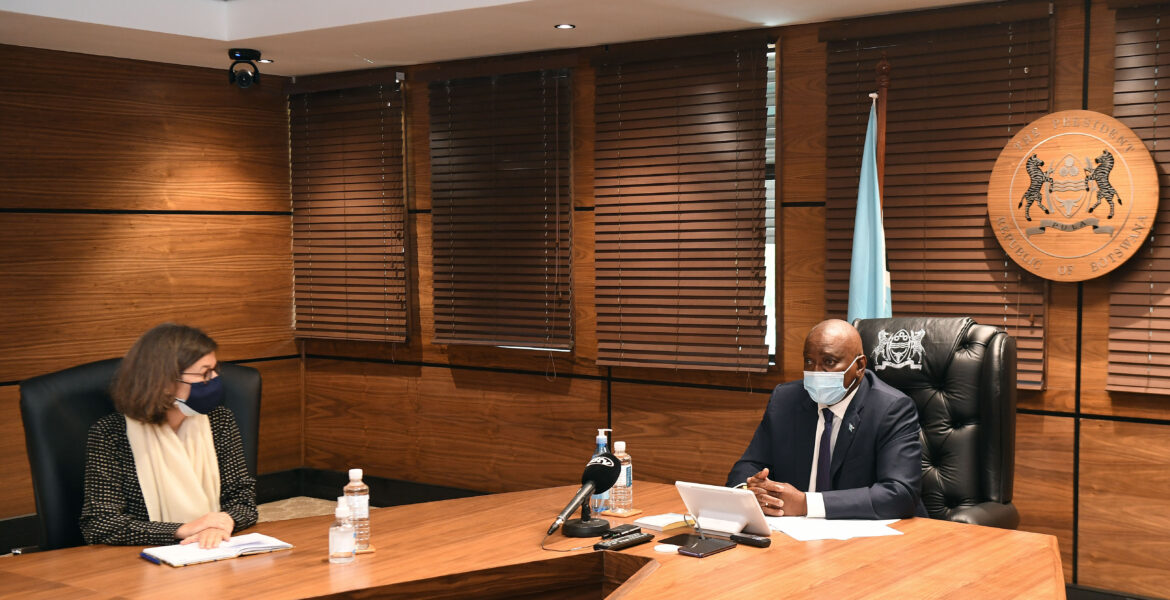Oscar Motsumi*
Botswana is debating a thorough review of its constitution. I want to argue that a review of the constitution, the supreme law in our land, and foundation of our political culture, should start from a clear appreciation of the state.
There are common features to what constitutes the state. As for what it does or cannot do, there you have as many definitions and arguments as there are states in the world, and these definitions and debates change almost every day; the reason, I suppose, we have a legislative body at the heart of every democracy, to monitor, police, superintend, admonish, investigate, surveillance and nurture the powers and functions of the state, daily, sometimes twenty-four hours a day (mostly in times of crisis and war).
Never mind what they taught you at school. The state is a complicated institution. Go into political office if you don’t understand what I mean. I like the observation by Edelman (1964) that the state can benefit people. It can also threaten them. Jail them. Make them rich, or poor, safe or insecure, dignified or wretched.
Sometimes it belongs to “us” when you are in power. Sometimes it belongs to “them” when you are out of political office. People die in defence of the state, or in trying to preserve its status quo. Variously characterised as liberal democratic, authoritarian, productive or exploitative, soft or hard, small or overextended, the state is the most problematic concept, and practice, in politics and development literature.
It is essentially an association among people for the end of government. It is a legally constituted organization attached to a particular territory, and a recognized entity in international law. Apparatuses of the state are generally a combination of some of the following; executive, legislature, judiciary, bureaucracy, the military, police and associated security organs, all regulated by the constitution and the rule of law (at least in a democracy.)
The modern state is embodied in these institutions, and its operation generally aspires to modern notions and theories of justices. Government, the national policy maker and guardian of public goods, is composed of multiple actors like politicians, technocrats, bureaucrats and others charged with public administration.
Its functions are partly determined by the ideology of any particular ruling class, or coalition of ruling classes, which may favour a limited or expanded role for it in the execution of its duties. The constitution is important in any examination of the state because it incorporates certain power rights associated with legislative, executive and judicial authority.
These powers are immense because the state has ‘maximal control’ over national resources. It also has monopoly of violence and force in society. Law originates with the state. It has the authority to make binding decisions for people and organizations juridically located within its territorial boundary.
The state is simultaneously ‘the people’ who do whatever it is that the state itself does. Those who work for the state are placed in authority over others; ‘society.’ And, they too are simultaneously public servants.
The social contract between citizens, or more broadly, society, and the state, is such that citizens surrender some of their rights and freedoms in return for security from arms of government and public authority. Further in this contract citizens get public services and various benefits like overhead social capital.
Critics of the state argue that citizens are structurally too disorganised and weak to exert much political influence on such powerful state institutions. That politicians use government resources to increase their hold on power. That public officials trade access to government benefits for personal gain. That far too often the state uses its power to get access to the properties of citizens. And that all these actions breed inefficiencies that lead to inequitable allocation of resources, impoverishment and reduced freedoms.
It is under this background that many Batswana have been arguing for constitutional review this past many years. They feel the present constitution is outdated. That it is a colonial relic. That Batswana did not, as free and sovereign citizens, participate in its drafting and founding. That it violates, or omits, some of their rights, obligations and responsibilities as citizens, and diminishes the roles they can play in public life to build better lives, shelters and communities for themselves.
Some want expanded rights in employment, education, culture, languages, heritage, politics and the moral conscience of nation; including abolition of the death penalty, abortion rights for girls and women, unemployment benefits and poverty eradication. In short Batswana want a committed and strong, efficient, incorrupt, developmental state. They want political efficiency. Foresighted planning, budgeting and deployment of public resources and finances. They want commitment and enlightenment in public administration. They want an acknowledgement of cultural and linguistic identities and the flowering of all languages and social mores.
And let’s hope this constitutional review succeeds in setting us on the path to the just society demanded by Batswana for the twenty first century historical experience and the world beyond.
Oscar Motsumi*

